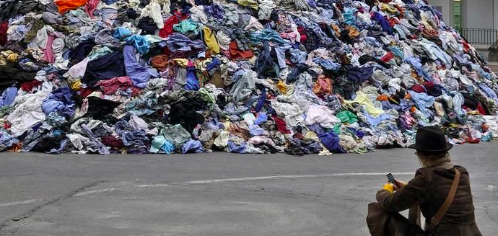In a context where the fashion industry is seeking a transformation to become more ethical and sustainable, AI presents itself as a valuable tool to drive this change. However, on this journey, there are some challenges that need to be faced immediately, such as the need to establish a traceability throughout the production process; and the urgency in reduce the amount of waste that this industry currently generates. In this sense, the Artificial Intelligence It can be an ally to overcome these problems more effectively.
ADVERTISING
Production chain traceability: a way to make fashion more transparent
The traceability of the production chain is a crucial aspect to guarantee the sustainability of this industry. This is because, unfortunately, the complex fashion supply chain is often associated with several socio-environmental problems, such as the use of slavery-like labor and the excessive exploitation of natural resources.
To address this issue, AI can have a positive impact by automating the collection and analysis of data that reveals the origin of raw materials and working conditions in factories and plantations, for example. This makes it easieraria identifying problems in the chain and, consequently, streamliningaria creating more responsible solutions.
Furthermore, this collected information can be used as an essential transparency mechanism in the industry, as it would be used to report to consumers and other interested parties about the origin and production conditions of the products they are purchasing.
ADVERTISING
Fashion needs to reduce the amount of waste it generates
AI can also help reduce industrial waste, covering both the production and post-consumption stages.
Alarming data highlights the excessive production of clothing items by the fashion industry, resulting in a significant amount of unsold parts, which are often destined to be discarded or even incinerated.
In the clothing production stages, using AI can more accurately anticipate garment demand trends, resulting in the containment of excess and unnecessary production. Produce more assertively and responsibly – or even less! – is fundamental in the search for sustainability in this sector, considering that this can contribute to the reduction of textile waste, less extraction of natural resources and the reduction of socio-environmental impacts.
ADVERTISING
In the context of post-consumption, AI has the ability to optimize brands' reverse logistics processes, which enables more effective management of products at the end of their life cycle. This approach not only minimizes waste, but also encourages opportunities to reuse, recycle and resell items, extending the useful life of parts and relieving pressure on landfills.
It is necessary to visualize the different possibilities of using AI as a sustainability tool
In addition to the solutions mentioned above, there are many other possibilities for using AI to accelerate the transition process to more sustainable fashion, such as in the discovery of more environmentally friendly materials and in transport logistics, for example.
On this journey, let's pay attention to whether this industry will only use it as another tool that encourages inequalities, or whether AI will be an ally in the search for ethical and fair fashion. The outcome will depend on the choices and intentions of the people who shape the application of this powerful technology.
ADVERTISING
@curtonews In recent times, AI has been gaining more and more space in various sectors. In the fashion industry, it is no different. The possibilities offered by AI have the potential to revolutionize and improve sustainability in all aspects of the area's production and consumption chain.
♬ original sound – Curto News
Claudia Castanheira She is a socio-environmental communicator, professor and researcher focusing on sustainability and socio-environmental justice. She has a master's degree in Discourse and Sustainability (USP), founder of Brechós pelo Mundo and collaborator of Fashion Revolution in Belgium. @euclaudiacastanheira
Read also






